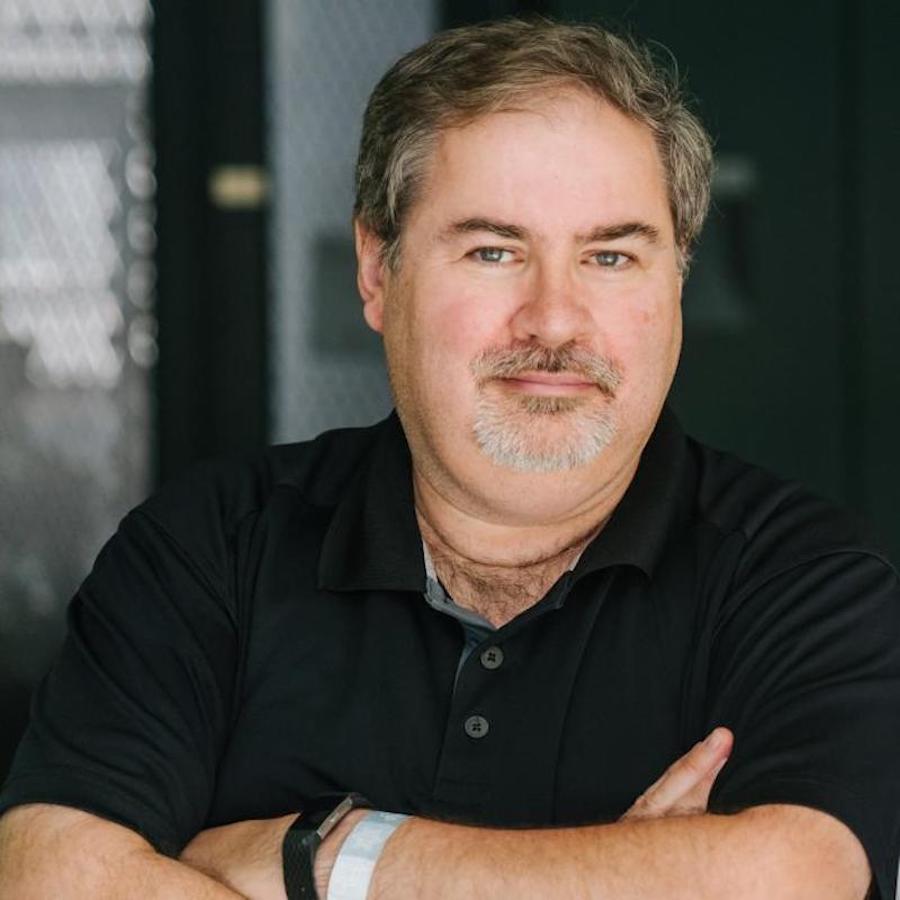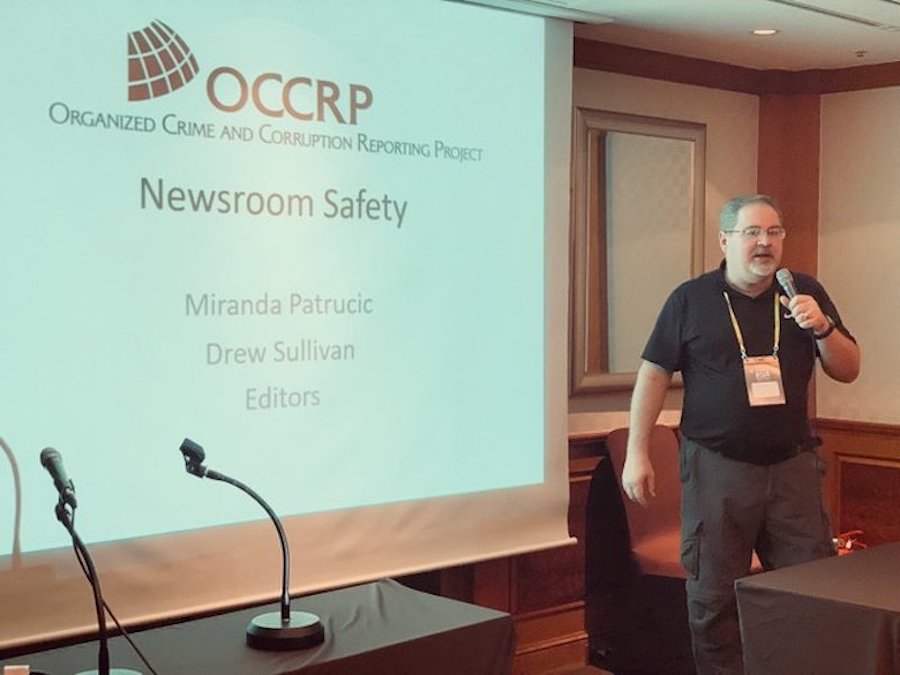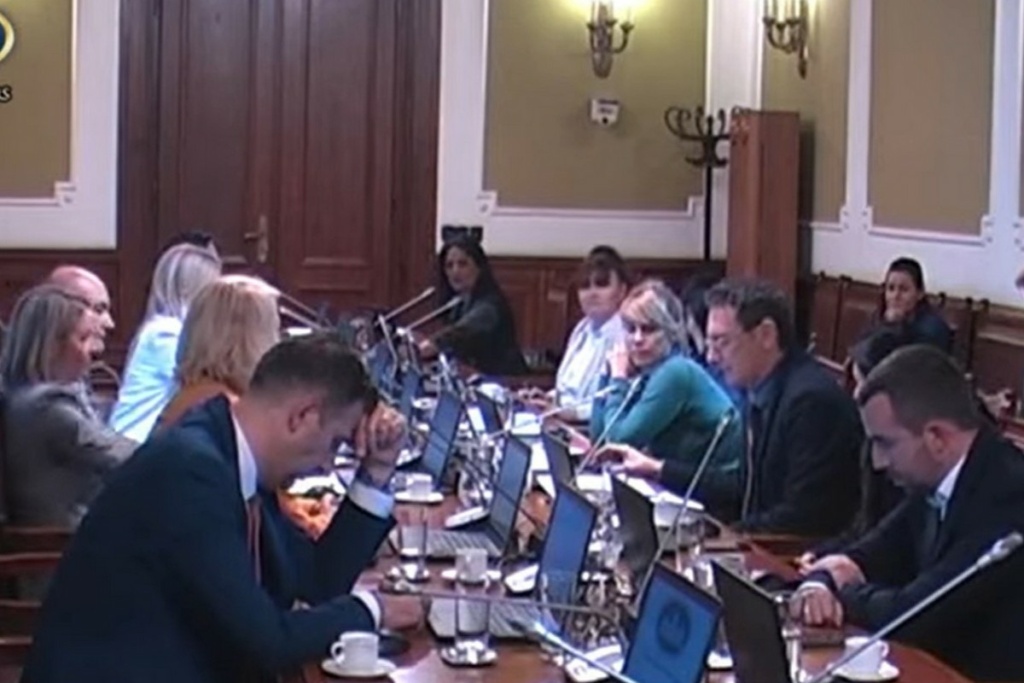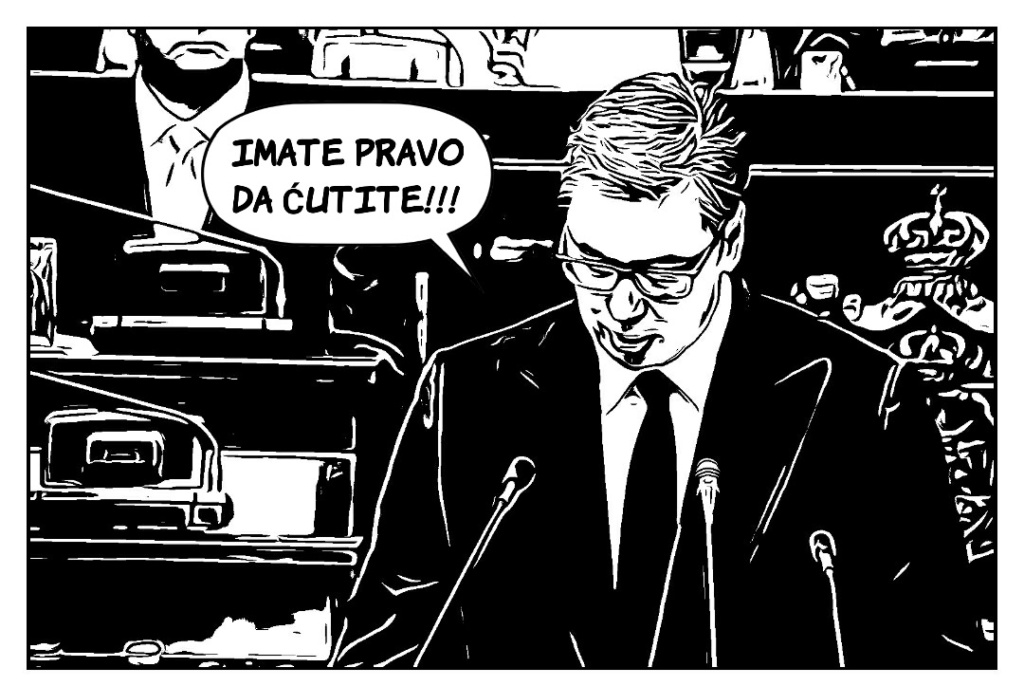It was at the beginning of the 2000s that people from the Balkans first got to know Drew Sullivan, an American journalist, and editor, when, together with Paul Radu, he founded the Organized Crime and Corruption Reporting Project (OCCRP), a network of about fifty media, including Center for Investigative Journalism in Serbia (CINS) and investigative portal KRIK.
Sullivan worked on media development in the Balkans for a number of years, especially in Bosnia and Herzegovina, where, in 2004, he founded the first investigative outlet in the region – the Center for Investigative Reporting (CIN).
In 2013, the OCCRP exposed, at that time, the largest tax fraud in Russian history, the so-called Magnitsky case. After the affair was reported, the lawyer and whistleblower Sergei Magnitsky was imprisoned and abused under the false accusation that he had committed fraud. His death in jail led to cooling relations between the USA and Russia and the law named after him.
In 2017, together with the partner organization International Consortium of Investigative Journalists (ICIJ), OCCRP received the Pulitzer Prize for uncovering the Panama Papers. This was a multi-year investigation during which some 11.5 million documents were discovered, and a database was created with 200 thousand entrees who hid their business in secret offshore accounts.
In addition, Drew Sullivan is the creator of the Reporters Shield, an initiative that helps defend investigative journalists against the intimidation and exhaustion brought on them by SLAPP lawsuits.
The interview was conducted after the launch of the Reporters Shield in New York when serious suspicion arose that journalists and their sources are being monitored in Serbia.
Cenzolovka: Krik’s editor-in-chief Stevan Dojcinovic publicly said that he suspects that journalists in Serbia are surveyed after the article about president Aleksandar Vucic’s alleged connections with a criminal gang was announced in Serbian tabloid Informer and only later published by New York Times. In addition, it seems that Informer knew about another article four days before it was published in Guardian, including knowing who the sources for the article were. Given that Krik is part of the OCCRP, do you know if journalists in Serbia and/or their sources are under surveillance?
Drew Sullivan: Yes, it appears as if Vucic has weaponized not only organized crime but state intelligence officials to do his dirty work. Many of the „scoops“ by pro-government media about KRIK appear to come from surveillance by state intelligence staff.
It’s a serious misuse of state resources and a very dangerous sign that Vucic will use autocratic methods to attack those who pose a risk to him. In this case, the risk is the truth, as published by KRIK.
Vucic also uses organized crime to help him as when he directed football hooligans to attack protestors.
This is actually not a Vucic invention. During the days of Tito, Serbian crime figures abroad were managed by state intelligence officials to conduct assassinations and procure information for them.
So, this is really a continuation of anti-democratic actions by the state. The problem is that this is likely being used against opposition politicians, activists and others. They are likely collecting kompromat and using it against people to stop them from criticizing Vucic. This is the path to state capture, and it leads to a very bad result for the people of Serbia.
THERE IS NO PROGRESS IN RESOLVING THE CRIMES AGAINST JOURNALISTS BECAUSE THE PERPETRATORS ARE CONNECTED WITH THE AUTHORITIES
Cenzolovka: How do you comment on the fact that the most brutal attacks on journalists in Serbia, including killings of Dada Vujasinovic, Slavko Curuvija, and Milan Panic, as well as attempts on their lives, such as in the cases of Dejan Anastasijevic and Milan Jovanovic are not resolved or processed in the courts?
Sullivan: Nobody wants to dig into those cases. It was state actors who were likely involved and it doesn’t serve the people in power to solve these cases. The cases are actually probably already solved. People know who did this. But it’s likely people who are part of the current and past governments and so no one digs further.
Digital security has to the part of journalists’ daily lives
Cenzolovka: One of the notorious cases of spying on journalists is that of OCCRP’s associate Khadija Ismayilova. What do you suggest to journalists in similar situations?
Sullivan: If you’re a journalist, especially in certain countries, you should assume you’re being surveilled and digital security should be a part of your daily life. The perfect storm of bad leadership and sophisticated technology has led to a new world for journalists. My suggestion to journalists is to be prepared to acknowledge everything in your life. It’s not an ideal way to live, but it’s what we face.
Cenzolovka: You used to live and work in Bosnia for many years. Did you have any similar experiences?
Sullivan: In Bosnia and Herzegovina, there are many practices that are similar to what happens in Serbia. I am too old to get into any trouble anymore.
Cenzolovka: You had a close encounter with Informer in the past, including winning the court case. Were you happy with the outcome?
Sullivan: In my opinion, Informer is really the worst of what Serbian journalism represents. Their articles about me were found by the court to be defamatory. They never called me before publishing. From a journalism perspective, to not even call the person you are writing about is a callous disregard for the truth.
Others have had similar complaints. I wonder what their motivation is for writing story after story about KRIK and OCCRP that keep proving to be wrong. It’s effectively acting as a form of propaganda.
Attacks on real journalists will continue as long as Vucic continues to lie to people
Cenzolovka: I suspect you are well aware of the physical and verbal attacks on journalists in Serbia. Do you have a feeling that the attacks are increasing?
Sullivan: All over the world there is a fight for the truth. But autocratic governments have a big disadvantage. They are terrible for their citizens. So, they have to constantly lie and tell people things are great. If you don’t have honest media pointing out these lies, then the truth has to go through everybody person to person until a majority of the citizens realize their government is corrupt.
Governments propagandize by finding corrupt media they can use to spread their lies and attack their opponents. It’s an old story. These attacks will continue against real journalists as long as Vucic is lying to the people of Serbia. Putin simply closed all independent media. Orban had his friends buy out all the media in Hungary. We keep fighting to tell the truth. That’s our job and we will never stop.
Cenzolovka: Before OCCRP, you worked in media development in Bosnia. After the wars, the international community invested a lot of money and know-how in media in the Balkans. Given today’s media situation, did that effort pay off?
Sullivan: Media development in BiH probably didn’t work as well as it should have. There were millions of dollars spent each year for more than a decade on media. Many of the organizations that were invested in are closed or were taken over by politically connected ownerships.
OCCRP and CIN started in that process and have succeeded, but many investments have little to show for them. The big problem was that the media ownership was never very effective or organizations simply got taken over. It happened in Serbia in the case of B92. But the investigative organizations have survived. In the end, it paid off for us but it took a tremendous amount of work.
Cenzolovka: Reporters Shield was recently launched in New York. How did the Reporters Shield come to be?
Sullivan: I came up with the idea about 8 years ago essentially as a tool for OCCRP to get insurance. We are always worried about losing our insurance because we are sued so often and I wanted something we could never lose.
I called a bunch of meetings with donors and journalists and lawyers to get people involved. Everybody loved the idea but it could never get the traction it needed. Over the years, I worked with pro bono attorneys and insurance experts and they helped refine the idea and added their own improvements. Someone ultimately came up with the idea of using a membership program which really solved many problems.
Then it was Samantha Power at USAID who really made it happen by providing the key funding to get it started. We were lucky along the way to meet the right people and so Reporters Shield has many mothers and fathers.
THE GOLDEN AGE OF INVESTIGATIVE REPORTING
Cenzolovka: Both OCCRP and Reporters Shield practice and protect journalism in the public interest. How do you see the future of quality journalism? Is it in media NGOs in big, legacy media?
Sullivan: We are in the golden age of non-profit, public service investigative reporting. The organizations that do this work will continue to grow and prosper because we need them now more than ever.
Who’d have ever guessed we would have global investigative-only nonprofit media? It’s amazing. I think as long as they are needed, they will grow and prosper. They will only face problems when we defeat disinformation and autocracy. Therefore, the mid-term future looks very bright.





 Saragusti: Niko sada nije bezbedan. Zločini su jezivi. Novinari su ubijeni dok obavljaju svoj posao
Saragusti: Niko sada nije bezbedan. Zločini su jezivi. Novinari su ubijeni dok obavljaju svoj posao Medijski amandmani umiru u skupštinskom mraku: Noćno zasedanje Odbora, u četiri čina
Medijski amandmani umiru u skupštinskom mraku: Noćno zasedanje Odbora, u četiri čina Snaga dobre priče: O mitologiji medija
Snaga dobre priče: O mitologiji medija
Ostavljanje komentara je privremeno obustavljeno iz tehničkih razloga. Hvala na razumevanju.